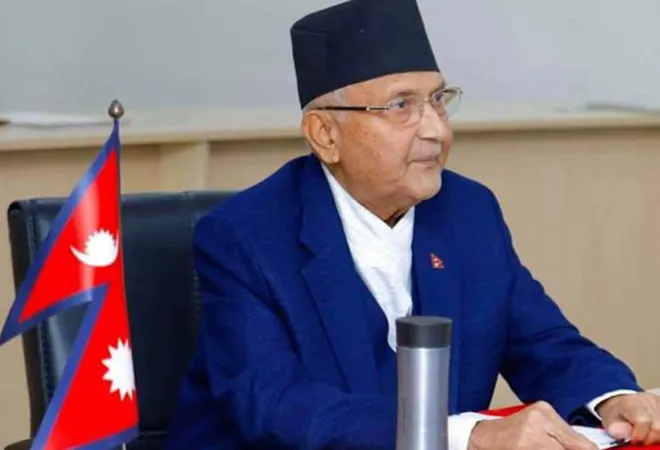
India often faces criticism from its immediate neighbourhood that it holds the development projects but does not deliver on time. Even within India, think tanks, media and foreign policy observers suggest India to speed up the development projects in Nepal in the face of growing Chinese influence. However, in the last couple of years, India’s image of not completing projects on time has gradually changed with completion of few vital projects. Despite the occasional hiccups in bilateral relations, the joint projects are showing welcome signs of professionalism.
Although, many joint projects are still mired with bureaucratic hurdles including the non-operational railway line from Janakpur in Nepal to Jaynagar, India. While the high-profile political visits have been mostly centered on improving the connectivity between the two countries, in implementation mode, the same spirit could never be replicated. Noticeably, the Nepalese Prime Ministers’ India visits are known to majorly include issues of pending projects in communiqués. In looking back, the counts of opportunities foregone are too many to be kept in record. Notwithstanding the poor track in implementation side, both countries have made positive exceptions with few selected projects in recent past.
One of the remarkable projects completed before the stipulated time framework is cross-border petroleum pipeline. In September 2019, Nepal Prime Minister KP Sharma Oli and Indian Prime Minister Narendra Modi inaugurated the Motihari-Amalekhgunj petroleum pipeline, first of its kind in South Asia. The 69-km pipeline is reducing the cost of transportation of fuel from India to Nepal. This project is taken as a game-changing project in Nepal. On 7th April 2018, Oli and Modi had jointly laid the foundation stone for the construction of pipeline and it was aimed to complete within two years but project was completed even before the deadline. Now, there will be smooth transport of fuel from India to Nepal and it will not be disrupted because of usual hindrances in bordering areas.
Another progress being made in the last couple of years is competition of 7 out of 14 India-funded roads in Terai region of Nepal. The 3rd meeting of Joint Project Monitoring Committee took place in first week of March, 2020 concluded that these roads will strengthen Terai road network in Nepal and improve the movement of people and economic activities in the region. There is a speedy progress seen in the remaining other projects as well.
There has been some substantial progress in the railway connectivity as well. At least six railway projects are proposed and there have been some progress in the recent times. These are (i) Jaynagar (India)-Janakpur (Nepal) to Bardibas in Nepal, (ii) Jogbani in India to Biratnagar in Nepal, (iii) Nautanwa in India to Bhairahawa in Nepal, (iv) Rupaidiha in India to Nepalgunj in Nepal, and (v) New Jalpaiguri in India to Kakarbhitta in Nepal, and (vi) Kathmandu-Raxual Mainly after the talk of Chinese railway, Nepal-India railway line has made good progress because it is feasible in terms of both geography and costs. Kathmandu-Raxaul railway line has made significant progress in the last one year. The Indian side has already completed the pre-feasibility study of Kathmandu-Raxual railway line and both countries are holding consultations on preparing the Detailed Project Report of railway line. Unlike Nepal-China railway line that is uniquely placed with difficult geography, the construction of Kathmandu-Raxaul railway line is something very much possible as per the earmarked budget and construction plan.
Coming to the road network, two countries are connected as Kathmandu-New Delhi direct bus service is already in place. Similarly, Nepal’s other few big cities are directly connected to Delhi through bus services. Other several connectivity projects are also being discussed. For inland waterways network, Nepal has been keen to work in unison with India. India has already agreed to allow Nepal to use three inland waterways, thus expanding its transit options. Nepal can operate its own vessels on the river Ganga . India has given consent to grant access to the Kolkata-Kalughat, Raxaul; Kolkata-Sahebgunj, Biratnagar and Kolkata-Varanasi-Raxaul routes for waterways. India has developed a waterway on the Ganges River which connects Varanasi and the seaport of Haldia, Kolkata. If Nepal gets access to waterways, it will facilitate movement of cargo which it imports from third countries to Nepal.
Hydropower projects funded by India did not make much progress in the last two decades in Nepal due to various reasons known and unknown to most of us. In the last couple of years, there have been some visible progresses in hydropower projects. For instance, Arun-3 hydro-electricity projects have gained momentum with financial closure in the first week of February this year. Arun-3 project was one of the much-talked and pending issues since 1990s. When it comes to energy cooperation, two countries have already agreed to go for energy banking concept and two sides are working to operationalize it. According to this concept, Nepal will export power to India during the summer season which exceeds imports during the dry season.
The tasks of construction of integrated check posts have gained momentum in the past couple of years. The Integrated Check-Post (ICP) in Biratnagar was inaugurated in January this week. The cheapest was furnished with some modern facilities such as electronic weighbridges, fire safety, warehousing facilities including the refrigerated cargo, 24×7 monitoring through CCTV and public announcement systems. The post has also the capability of handling around 500 trucks per day. Earlier in 2018, India handed over the Integrated Check Post (ICP) Birgunj to Nepal. Construction of ICP Birgunj was started in 2011 April and it took seven years to complete the construction and bring it into operation but constructions of other checks are not taking much time.
Two countries have already agreed to construct Integrated Check-Posts at four major points along borders. These are: Raxaul (India)-Birgunj(Nepal), Saunali (India)–Bhairahawa(Nepal), Jogbani(India)-Biratnagar(Nepal) and Nepalgunj Road(India)-Nepalgunj(Nepal). Out of four, two have been already completed and remaining two is being constructed. Additionally, India-funded reconstruction of houses in Nuwakot district is another progress made in this period.
It has been four years since two countries realized that they need to complete the pending projects first instead of signing new projects. In 2017, then Nepal’s Prime Minister Pushpa Kamal Dahal’s visit to India, a bilateral mechanism was made in order to identify and address the bottlenecks in existing bilateral projects. The meeting which was attended by the Foreign Secretary of Nepal and Indian Ambassador in Kathmandu played vital role in easing the terms of bilateral ties and development partnership between India and Nepal. Similarly, India-Nepal Joint Commission meeting led by foreign ministers of both countries is also in helm to review the state of bilateral projects and issue guidance to authorities to address the bottlenecks.
Irrespective of diplomatic high and low, India and Nepal should give top priority to speed up the development projects which can contribute to maintain cordial ties between two countries. The meeting of existing bilateral mechanisms should take place on regular basis; the current pace of works should be continued without any interruptions. Making the initiatives productive has been a key challenge before the policymakers in both sides, now the reckoning should be to calibrate the shifting fundamentals and keep the policies and action in order. Mainly, India should be serious on completing the pending projects.
The views expressed above belong to the author(s). ORF research and analyses now available on Telegram! Click here to access our curated content — blogs, longforms and interviews.




 PREV
PREV



